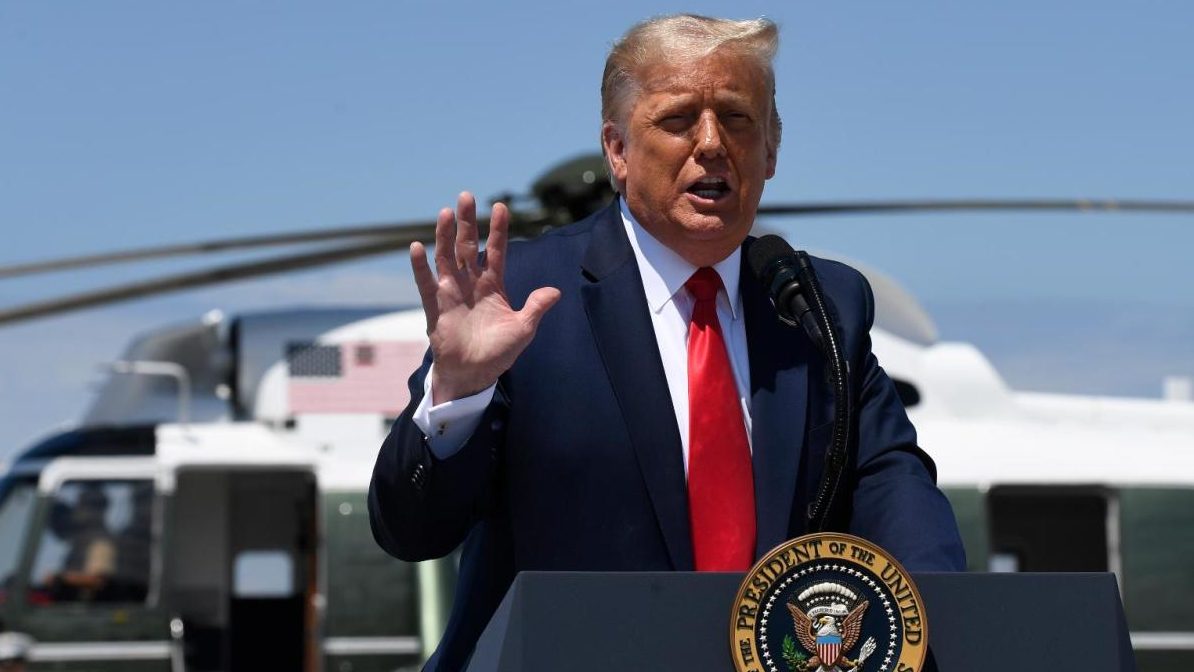
Like President Donald Trump, rich Americans often deploy sophisticated tax avoidance strategies to maximize their wealth.
Not to be confused with tax evasion, which is illegal, tax avoidance is entirely legal, even if many view it as unfair.
A sweeping New York Times report published Sunday revealed numerous tax reduction strategies used by Trump. He’s not alone. Affluent taxpayers often have more avenues than ordinary Americans to avoid paying Uncle Sam.
Wealthy Americans are the largest source of underreported income, according to IRS data analyzed by researchers. The top 1% of American taxpayers account for about 34% of misreported income, according to a study published in the National Tax Journal.
Many wealthy Americans deploy complex, arcane but wholly legal strategies to minimize their tax obligations. Some use fairly straightforward strategies that allow them to minimize their taxes under the tax code.
Here are some of the most common tax avoidance strategies deployed by the wealthy:
Growing wealth through investments
It’s much harder to avoid taxes on your paycheck than on your investments.
In general, the federal government taxes regular wages at higher rates than investment income. The long-term capital gains tax rate maxes out at 20%, and the highest income tax rate is 37%.
In other words, if you make a salary of $1 million, the government keeps $370,000. If you make $1 million on stocks or similar investments, the government keeps $200,000.
Selling assets at strategic times
Taxes on assets such as stocks and real estate investments aren’t owed until they are sold. That helps people such as Jeff Bezos, the Amazon CEO, founder and richest person in the world, grow their wealth rapidly while avoiding a huge tax bill. Then they can be strategic about when they sell.
By stockpiling assets without selling, rich investors can minimize their tax burden.
“Wealthy individuals can wait to sell until it makes the most sense for them, such as a year in which they will have large capital losses to offset the gain,” according to the Center on Budget and Policy Priorities.
Unrealized capital gains accounted for more than one-third of the assets held by the richest 1% of Americans in 2013, according to a Federal Reserve analysis. By comparison, the bottom 90% of Americans have only 6% of their assets in unrealized capital gains.
Using business income loopholes to reduce personal tax liability
The 2017 tax bill passed signed into law by Trump allowed for a 20% deduction on certain business income that passes through partnerships, sole proprietorships and S-corporations.
This is income that individuals report on their personal IRS returns, but the tax break allows them to reduce the tax rate on that money by up to 7.4 points, according to the CBPP.
This setup is most likely to help the wealthy: 61% of the benefits go to the wealthiest 1% of Americans, according to the Joint Committee on Taxation.
Lisa De Simone, associate professor of accounting at the McCombs School of Business at the University of Texas-Austin, said many tax breaks available for business owners were put in place to stimulate risk-taking and innovation.
“There’s a notion that there are lots of tips and tricks that only the wealthy can take advantage of,” De Simone said. “The provisions weren’t written to try to help the wealthy get away with things.”
Instead, she said, new businesses can benefit when they’re able to deduct early losses from income.
“You don’t have to be super-rich in order to claim a business loss,” she said.
Taking advantage of death tax policies to enrich their heirs
The tax code allows Americans to build wealth through deferred capital gains, then pass those assets tax-free along to their heirs upon death.
Called the “stepped-up basis” tax break, this loophole “encourages wealthy people to turn as much of their income into capital gains as possible and hold on to assets until death, when a lifetime of gain becomes permanently exempt from tax,” according to the CBPP.
The inheritor could be subject to paying the estate tax if the total value of the estate exceeds a certain threshold, but that threshold has been substantially increased.
The 2017 tax law doubled the amount of a deceased person’s wealth that’s shielded from the estate tax from about $5.5 million to more than $11 million. The limit is poised to reset to its original amount in 2025 unless Congress takes action.











